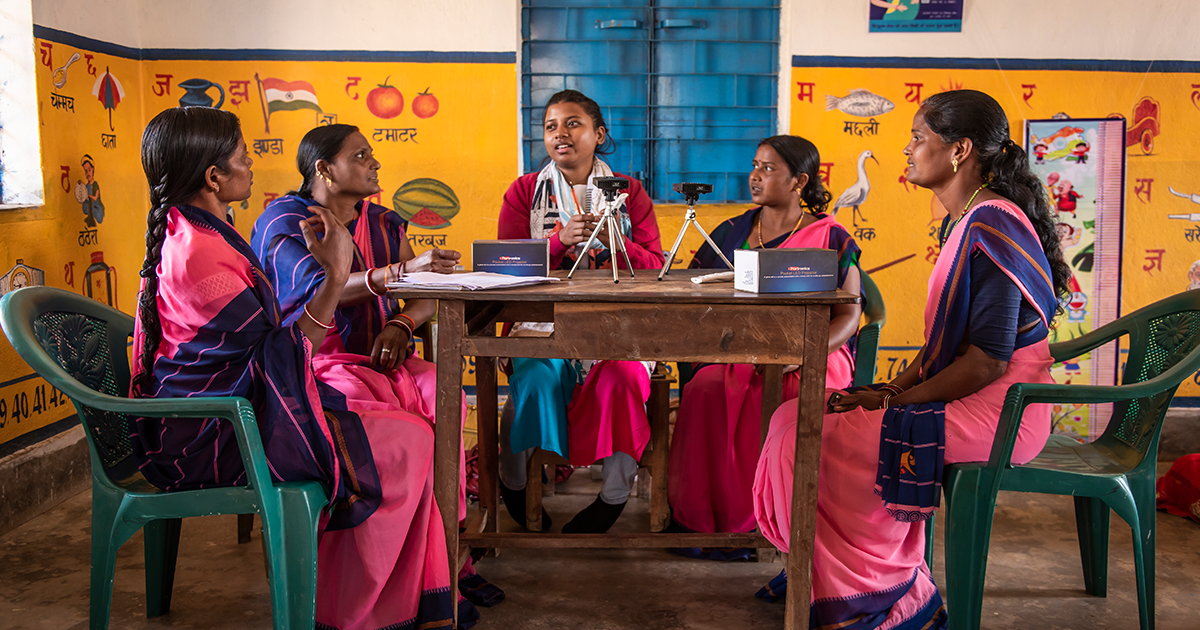To learn more about Digital Green’s AI-powered platform and how it impacts small-scale farmers in India, Ethiopia, Kenya, Nigeria and Brazil, we encourage you to sign up for our newsletter.
Integrated and Collaborative Approach Key for Impact on Health Behaviors

Digital Green has been working with Jharkhand State Nutrition Mission (JSNM) and the Department of Women and Child Development & Social Security, Government of Jharkhand to implement its USAID-funded project Samvad since 2016. The partnership aims to use Information and Communication Technologies (ICTs) to promote good practices in Maternal Child Health (MCH), nutrition and family planning among the rural community in a more accessible and scalable manner.
We worked with the Anganwadi Workers (AWWs) or frontline staff tasked with combating child hunger and malnutrition, building their capacities in video production and dissemination to create a set of locally relevant videos for the communities they work with. This exercise also helped us in mapping the key nutrition behaviours in consultation with JSNM and the implementation team at the block level including the Child Development Project Officer (CDPO) and AWWs. Each behaviour was further mapped on to the practices based on which technical content was developed by Digital Green.
Eight AWWs were trained on video production. We worked closely with them to develop storyboards based on their on-ground, first encounter experiences and relevant local contexts and beliefs to influence positive variance in the communities. They produced 15 videos.
This strategy of involving the staff at every level of the planning process helped integrate the project and approach into their systems.
We further planned the dissemination of these videos in a sequential manner among women of 1000 days cohort. 85 Picos were deployed on a sharing basis among 167 AWWs who were trained in dissemination (screening videos and moderating discussions). Each video is disseminated to a group of 20-25 beneficiaries every fortnight.
Over time, it was reported by the AWWs and lady supervisors that sequential video disseminations generated a lot of discussions, the turnout at the video screening started increasing and influencers such as the in-laws started attending the screening. Further, the AWWs reported that videos aided in explaining to the beneficiaries and their families important issues related to the health, nutrition and especially family planning in an easy, engaging and consistent manner.
“At the initial screening of the family planning video the beneficiaries at my centre would smile and look down to avoid answering my questions, but after 2-3 video screenings they started asking questions and taking condoms, and contraceptive tablets from Sahiya Didi,” shared one Anganwadi Worker.
The District Social Welfare Officer (DSWO) shared that, “Digital Green’s video-enabled approach has helped increase the attendance at the VHNDs in Patratu and helped in empowering Anganwadi workers.”
The DSWO witnessed the impact of videos on the direct beneficiaries and the subsequent rise in demand and was keen to support. She planned the distribution of 5,000 pregnancy kits aligned with the screening of the videos on ANC and Family Planning.